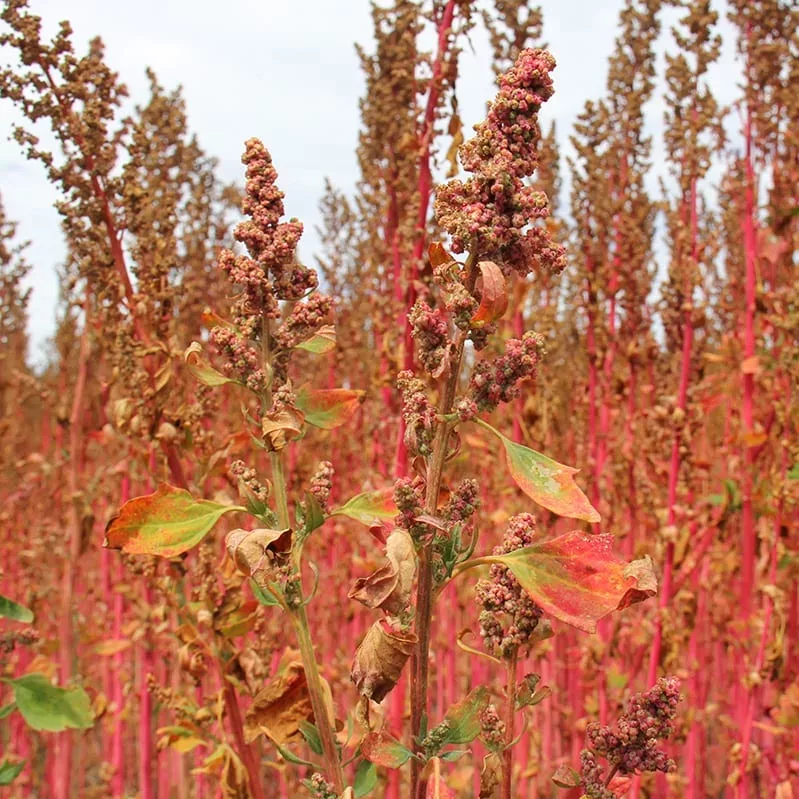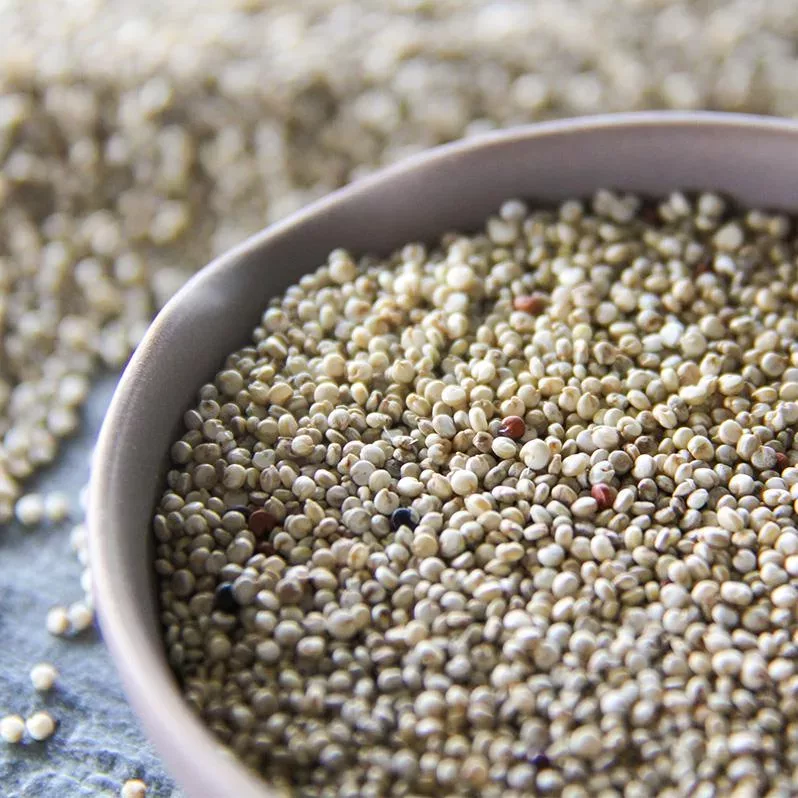
Vendor Profile: Lundberg Family Farms
Though the Olympic Peninsula seems to have little in common with the Andes, it is where quinoa destined for Lundberg Family Farms is being grown in our state. Additional farms are in California, Oregon, and Idaho. Many sites are still experimental, as are growing methods. Most of the quinoa grown for Lundberg uses a low-impact dryland farming technique, relying on the moisture provided directly by rainfall and humidity. Aha! Maybe that’s why it makes sense to grow quinoa on the Olympic Peninsula. Photos courtesy of Lundberg Family Farms.
We were already big fans of Lundberg Family Farms and its delicious sustainably farmed rice and whole grain products, but now we have yet another reason to love Lundberg Family Farms—QUINOA! To be precise, quinoa grown in the U.S. and even in Washington state.
This ancient grain was domesticated 3,000 to 4,000 years ago in Peru and Bolivia where it has long been a staple in peoples’ diets. Yet, a mere 10 years ago had you asked someone in the U.S. about quinoa (pronounced keen-wah) they would have likely answered you with a blank stare. Since then, the appetite for quinoa has exploded in the U.S., and for good reason, as explained in the below photo caption.

In 2013, recognizing that importing quinoa from the southern hemisphere to feed the growing U.S. demand was not the most ecologically sustainable situation, Lundberg started growing trial crops in the U.S. By 2016, Lundberg’s quinoa production topped 1.5 million pounds, harvested by 15 farmers on 800 acres.
Our love for quinoa aside, why else do we love Lundberg Family Farms?
It is currently run by the third and fourth generations of the Lundberg family and, since the farm was established in 1937, the family has always been committed to improving and protecting the environment.
Lundberg treats the soil, air, and water as important resources, respecting the delicate balance of nature.
In its rice fields, Lundberg pursues a program of ecological stewardship that includes: returning rice straw to the soil after harvest (instead of burning) to enrich the soil and protect the air and the environment, providing habitat for animals including migrating waterfowl that rest in flooded fields during the winter, practicing water-conserving irrigation, never growing genetically engineered rice varieties, using only natural pest control systems and generating and purchasing green power for its handling and processing facilities.
What’s not to love?
Look for Lundberg Family Farms products in our grocery and bulk departments and include more organic whole grains in your diet—for your good health and the health of the planet.
Learn More
Like the Co-op, Lundberg Family Farms is committed to transparency in its sustainability practices and is a member of the Sustainable Food Trade Association (SFTA). It reports annually on the same 11 action categories that we report on and sets goals for continual improvement in each area. You can read the SFTA reports for Lundberg and the Co-op on our respective websites.